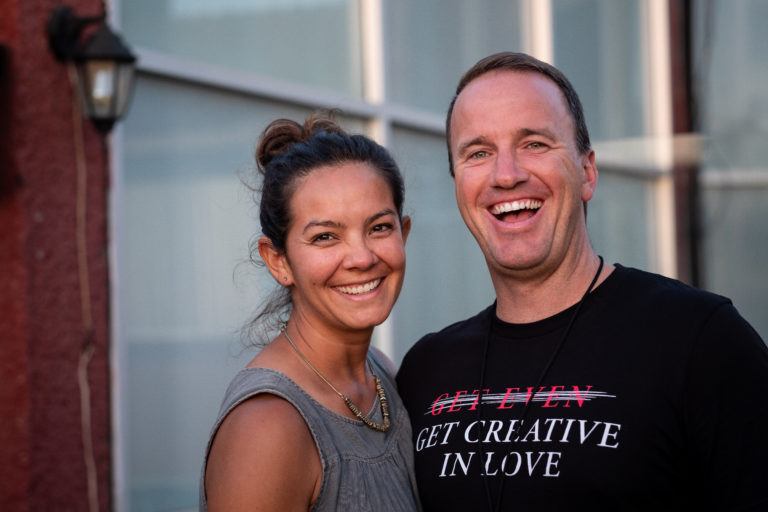At the Everyday Peacemaking Summit, we sat down with a few people and asked them to share what “Everyday Peacemaking” PRACTICALLY looks like in their everyday lives. Here are their stories:
“School started up, which means lots of time spent dropping off and picking up.
Eventually, I noticed a kid—a boy. He was crying a lot. People moved past him, but my heart just broke for him.
I learned the boy’s name was Santiago.”
For Matt and Florence, seeing their child start school hasn’t been easy. If you have kids, you may know the feeling. It’s scary waving goodbye, letting go, not really knowing what your child might hear or experience. Not being there to protect them.
These feelings are common. What isn’t always common, though, is to see beyond our own children and to notice the needs of others.
Florence continued: “It’s small. It isn’t big or earth-shattering or anything, but I saw Santiago and knew I needed to reach out. I think getting to know him, listening and comforting him was important to him.”
And this is an essential part of being an everyday peacemaker, friends: empathy, understanding, and compassion are muscles you exercise. They can grow. They can diminish. It’s up to you to do the work, make the plan, make choices, and be disciplined.
You don’t start off running a marathon. You run a block, then a few more, and over time you build capacity. We can’t just flip a switch and instantly be better. We build up to being more empathetic. We train to become more compassionate. We practice seeing in order to see more, to see with better eyes.
“We planted a church in San Diego, and we choose to see our homeless neighbors,” Matt said. “We started this thing every month called the Know Your Neighbors gathering. We invite neighbors—housed or unhoused—and anyone else to join us. We’re a small, scrappy church plant, but we’re committed to being as present as possible in the community.
So now we don’t just see a homeless guy screaming on the corner, we see Doug. We know Doug. We know his likes and dislikes. We know he has mental health problems, that people steal his medication, and that he has good days and bad. He knows us, and he loves our kids. Even when he’s screaming his head off at traffic, when he sees us he stops, waves, smiles, and asks how our kids are doing by name.
The point is, we’re taking steps toward our community, and we’re seeing good things all around—both for us and for others. It’s been an amazing ride.”
Curious how to start your journey as an Everyday Peacemaker? Sign-up here to receive a FREE 30-Days of Peacemaking Guide!

